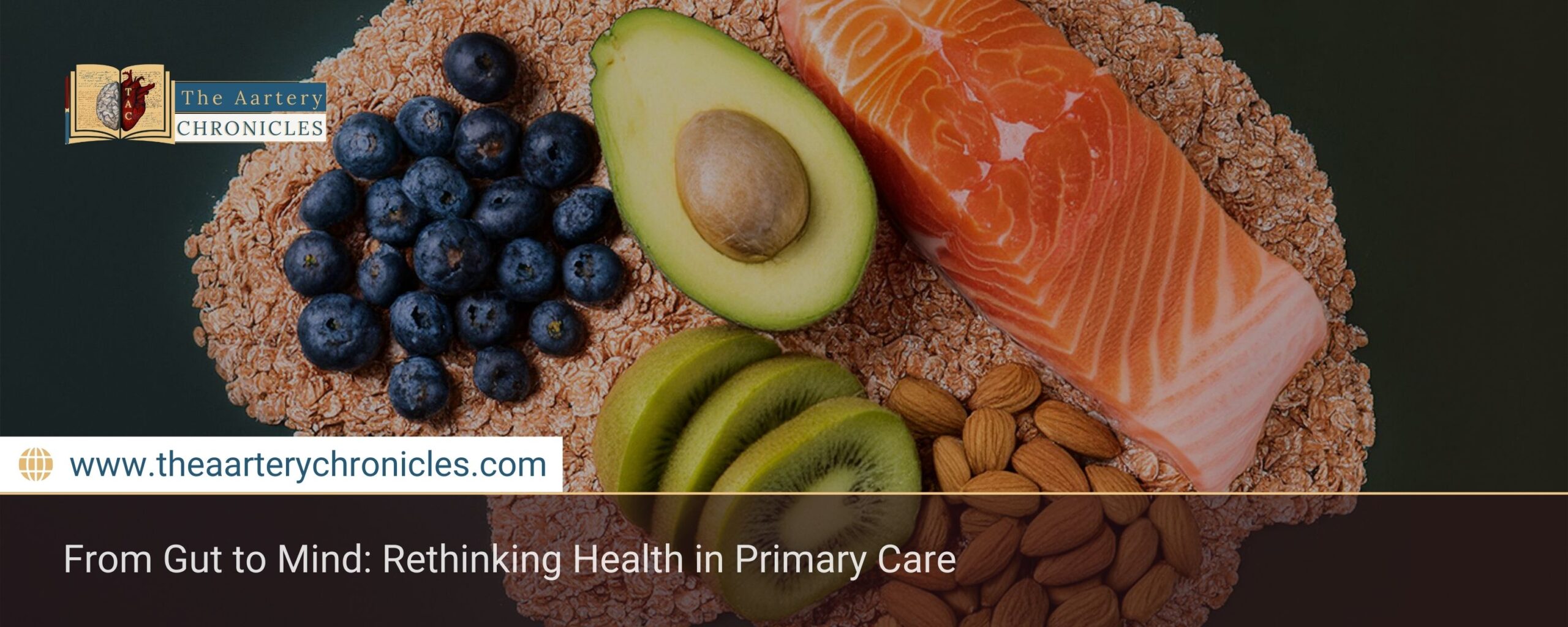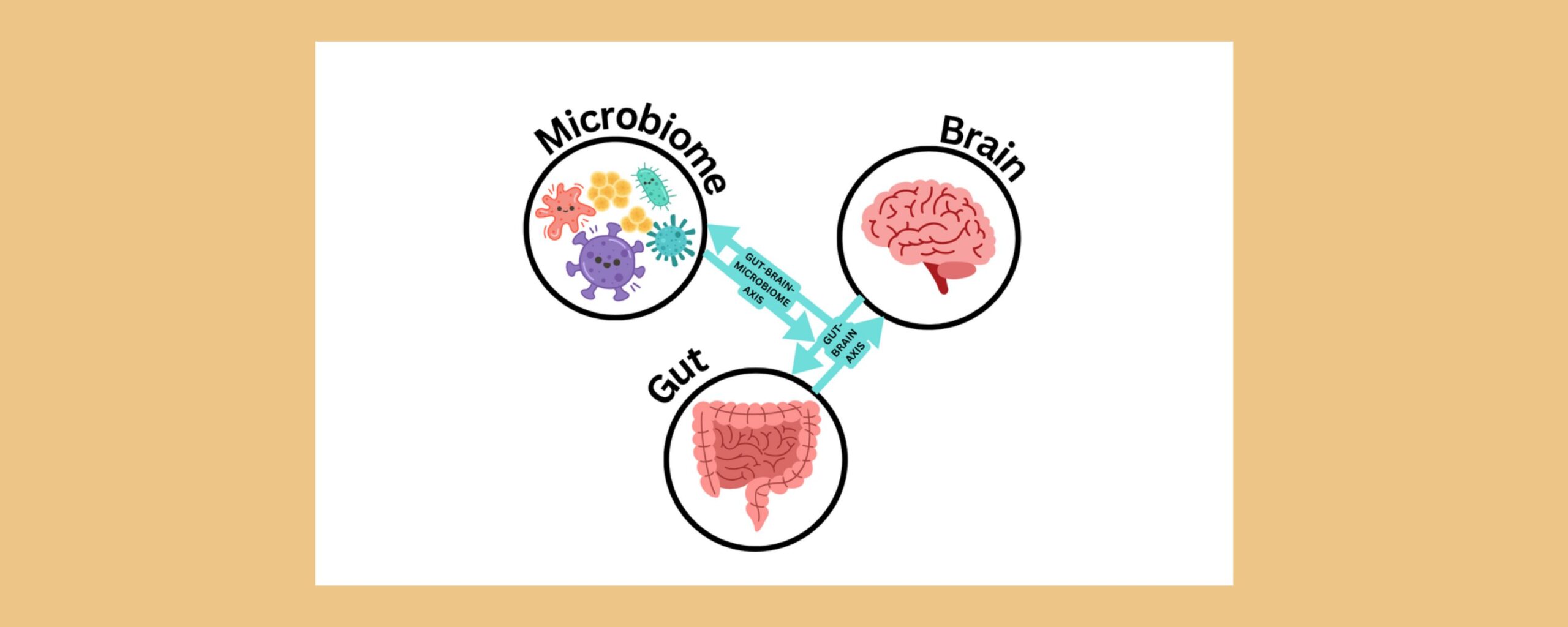

From Gut to Mind: Rethinking Health in Primary Care
Summary: The gut-brain axis is a two-way communication system that shapes emotions, cognition, and digestion. Stress, diet, and hormones influence this balance, highlighting the need for integrated care.
Introduction
We are familiar with the phrases “gut feelings” or “butterflies in the stomach.” These are not just casual expressions but descriptions of genuine physiological responses. The gut contains a complex system of nerves that communicates directly with the human brain, which is why we feel discomfort or unease in our stomach when situations do not feel right.
The science of intuition
It is important to understand that gut feelings are not random. They are often based on the brain making predictions from previous experiences, combining memory with the signals it receives from the body. This makes gut feelings a powerful example of how the mind and body work together to shape not only our decisions but also our overall health.
What is mental health?
WHO defines mental health as “a state of well-being in which an individual realises their own abilities, can cope with the normal stresses of life, can work productively, and can contribute to their community.” In today’s world, especially with the youth having to deal with so much more peer pressure, addiction, distractions, fear of being missed out, body shaming, competition, etc, keeping a check on one’s mental well-being is of utmost importance.
With increased expectations, inability to cope up and being negatively influenced to live a certain way, they are losing their ability to make meaningful decisions, and hence depression, anxiety, suicidal tendencies, etc have become common amongst them nowadays.
Since the importance of digestive as well as mental well-being is well known, it is high time we realise the importance of combining them both at personal levels for daily well-being, as well as a part of the holistic well-being of our bodies, to receive treatments for diseases at health care centres as well.

The gut-brain connection in primary care
Research shows our digestive tract is highly sensitive to emotions like stress and anxiety, which can alter gut function. (Harvard Health). As demonstrated by Pavlov’s famous experiment, the thought, smell, and sight of food can trigger our brains to feel hunger
The relationship between the gut microbiome and diet continues throughout life. Diet alterations can have a significant impact on gut bacterial composition. When gut bacteria are challenged with changes in diet, stress, or antibiotics, the physiology of the normal microbiome undergoes change and a dysbiotic state occurs. This leads to increased intestinal permeability, allowing bacteria to leak through the submucosa and into the systemic circulation, a phenomenon aptly named leaky gut syndrome.
The associated gut inflammation then further releases cytokines and neurotransmitters. Along with the increase in intestinal permeability, these molecules travel throughout the body. Elevated blood levels of cytokines TNF-a and MCP (monocyte chemoattractant protein) increase the permeability of the blood-brain barrier, enhancing the effects of rogue molecules from the permeable gut. Their release influences brain function, leading to anxiety, depression, and memory loss. This clearly shows how the gut can affect our brain and vice versa.
The Gut–Hormone Connection
According to the American Psychological Association, gut bacteria both produce and respond to the same neurochemicals—such as GABA, serotonin, norepinephrine, dopamine, acetylcholine, and melatonin—that the brain uses to regulate mood and cognition.
The complex interplay between the gut microbiota, sex hormones, and mental health is emerging as a pivotal factor in understanding and managing psychiatric disorders. Sex hormones also exert effects on intestinal bacteria, especially in women during their menstrual cycle, where these changes influence the brain barrier and immune functions.
Recent advancements in microbiome research have introduced the concept of the “microsexome”, which describes the sexual dimorphism of the microbiome and entails multidirectional interactions between sex hormones, the microbiome, and the immune system (Mulak et al., 2022).
So, there is essentially a tri-relationship between sex hormones, gut bacteria, and mental health. This further emphasizes that digestive issues require a holistic approach that includes the diagnosis and treatment of mental health disorders. Similarly, someone with a psychological disorder would need a thorough evaluation of their gut and endocrine health for overall treatment.
Practical takeaways: supporting your gut-brain axis
While science continues to map out the complex gut–brain link, small lifestyle changes already make a big difference. Stress management through yoga, meditation, journaling, or even a few minutes of mindful breathing can ease the release of stress hormones that disturb gut balance.
Eating a fiber-rich diet with fruits, vegetables, and fermented foods like yogurt, kefir, or kimchi helps gut bacteria thrive. Good sleep and regular exercise also support both digestion and mental well-being.
Looking ahead, researchers are exploring psychobiotics, which are probiotics that may improve mood and reduce anxiety, along with mind–gut therapies such as CBT and mindfulness training. In simple terms, caring for your gut isn’t just about digestion. It also supports your mood, resilience, and overall mental health.
Conclusion
Gut health involves a holistic approach that includes diet, lifestyle, mental, and hormonal health. Focusing on just one of these factors in isolation is not sufficient. Understanding how all these elements work in tandem is an urgent need of the hour, and integrating this approach into primary healthcare is essential for prevention, effective treatment, and overall well-being.
- Clapp M, Aurora N, Herrera L, Bhatia M, Wilen E, Wakefield S. Gut microbiota's effect on mental health: The gut-brain axis. Clin Pract. 2017 Sep 15;7(4):987. doi: 10.4081/cp.2017.987. PMID: 29071061; PMCID: PMC5641835.
- Biesmans S, Bouwknecht JA, Ver Donck L, et al. Peripheral administration of tumor necrosis factor-alpha induces neuroinflammation and sickness but not depressive-like behavior in mice. BioMed Res Int 2015;2015:1-14. [DOI] [PMC free article] [PubMed] [Google Scholar]
- 39.Gądek-Michalska A, Tadeusz J, Rachwalska P, Bugajski J. Cytokines, prostaglandins and nitric oxide in the regulation of stress-response systems. Pharmacol Rep 2013;65:1655-62
- Luana Leao, Saba Miri, Riadh Hammami,Gut feeling: Exploring the intertwined trilateral nexus of gut microbiota, sex hormones, and mental health,Frontiers in Neuroendocrinology,Volume 76,2025,
- Dr Nandini Dayalan
- Medicine and Diseases,Public Health
- 29 August 2025
- 11:00








